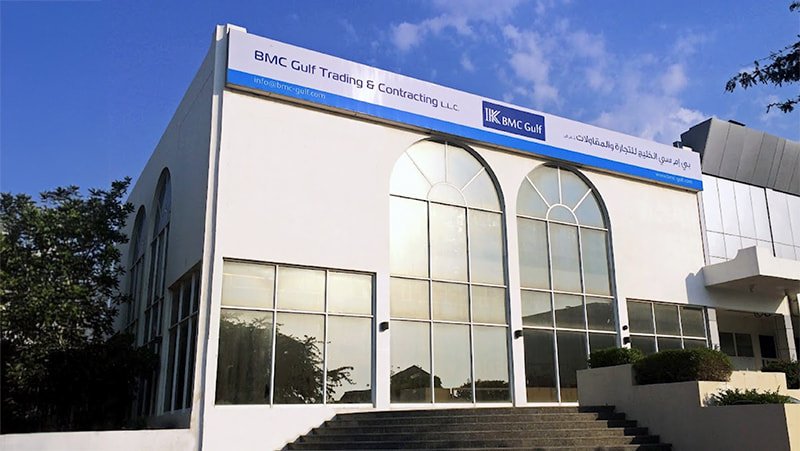Search standard for testing available at SKZ
Thermal analyses
Thermal test methods such as differential thermal analysis (DSC), thermogravimetry (TGA), thermomechanical analysis (TMA) and dynamic mechanical analysis (DMA) are standard methods for material characterization in plastics testing. In general, these tests are used to analyze material changes as a function of temperature or time, whereby tests with controlled heating or cooling rates as well as isothermal and dynamic measurements are possible. The advantage is that comparatively little sample material or small sample sizes are required for all methods.
- DSC is used to measure the change in heat flow of a material as a function of temperature or time. This method is used to determine melting points, crystallinity fractions, glass transitions, reaction enthalpies or the oxidation sensitivity of plastics.
- TGA is used to determine the change in weight of a material as a function of temperature or time. In this way, filler content and, if necessary, the proportion of polymer/polymer mixtures as well as the thermal stability and degradation behavior of materials can be analyzed.
- TMA is used to determine the change in the dimensions of a material as a function of temperature in a spatial direction. The method enables high-precision measurements of the linear expansion coefficient, whereby tests can be carried out with both compressive and tensile loads.
- DMA is used to analyze the viscoelastic behavior of a material as a function of temperature, time and/or frequency.
Further details on the methods
Accredited test methods
- Differential scanning calorimetry (DSC)
e.g. according to DIN EN ISO 11357-2, DIN EN ISO 11357-3, DIN EN ISO 11357-6 - Thermogravimetry (TGA) in accordance with DIN EN ISO 11358-1 and others
- Thermomechanical analysis (TMA) in accordance with ISO 11359-2 and others
Non-Accredited test methods
- Dynamic Mechanical Analysis (DMA)
Sample preparation:
The correct preparation of the samples is crucial. Different stresses or excessive heat input can lead to different results.
Sample weight:
The weight of the sample can influence the sensitivity of the measurements. Sample weights that are too small or too large can lead to inaccurate results.
Heating rates and cooling rates:
The rate at which the temperature is increased or decreased can affect the measurement results.
Sample condition:
The physical condition of the sample, especially the sample history, can influence the results of a thermal analysis.
Transportation and storage conditions:
Any aging processes before and during storage of the sample can influence the results of a thermal analysis.
Atmosphere:
The composition of the atmosphere can influence the measurement, which is why nitrogen is often used as an inert gas. In TGA, however, different gas atmospheres (air, nitrogen, oxygen) are specifically used to induce various degradation reactions.
Heat transfer and reaction kinetics:
In some cases, thermal events can occur simultaneously or in quick succession. The analysis of such superpositions requires special experimental procedures and knowledge in the evaluation of the measurement data.
- Hitachi STA 7200 and Netzsch 209 F1 Iris
- for thermogravimetric analysis
- Netzsch 204 F1 Phoenix, Seiko DSC 220, and Seiko Exstar 6000
- for differential thermal analysis
- Hitachi TMA/SS7100 for thermomechanical analysis
- Mettler Toledo DMA/SDTA861 for dynamic mechanical analysis
Differential scanning calorimetry DSC:
Identification of unknown polymers, determination of characteristic temperatures, analysis of polymer blends
Thermogravimetry TGA:
Determination of filler content, formulation analysis, determination of thermal decomposition and degradation processes
Thermomechanical analysis TMA:
Determination of linear expansion coefficients, identification of glass transitions
Dynamic mechanical analysis DMA:
Characterization of viscoelastic properties, high-precision determination of glass transitions, characterization of temperature and frequency dependence of modulus and damping.

97076 Würzburg
Telefon: +49 931 4104-0
E-Mail: info@skz.de
Route berechnen

97082 Würzburg
Telefon: +49 931 4104-123
E-Mail: training@skz.de
Route berechnen

Köthener Str. 33a
06118 Halle (Saale)
Telefon: +49 345 53045-0
E-Mail: halle@skz.de
Route berechnen

Rauher Grund 9
72160 Horb am Neckar
Telefon: +49 7451 62457-0
E-Mail: horb@skz.de
Route berechnen

Woltorfer Str. 77, Halle G
31224 Peine
Telefon: +49 5171 48935
E-Mail: peine@skz.de
Route berechnen

Weißenbacher Str. 86
95100 Selb
Telefon: +49 9287 99880-0
E-Mail: ezd@skz.de
Route berechnen

Via Buonarotti 175
20900 Monza, Italy
Telefon: +39 039 281561
E-Mail: info@prochema.it
Route berechnen

Str. Iancu Jianu, nr. 26
500178 Braşov, Romania
Telefon: +40 268 412 559
E-Mail: office@plastics-bavaria.ro
Route berechnen

Muntazah Complex (Exit - 25)
Jebel Ali Village - Dubai (VAE)
Telefon: +971 4 8845001
E-Mail: info@skz-me.com
Route berechnen

Ul. Kwiatkowskiego 5a
52-407 Breslau, Poland
Telefon: +48 71 35 84 000
E-Mail: dopak@dopak.pl
Route berechnen

Ikitelli OSB Demirciler Sanayi Sitesi, E2 Blok No:420
34490 Başakşehir İstanbul | Turkey
Telefon: +902126718170
E-Mail: info@polmakplastik.com
Route berechnen


SKZ – Testing GmbH
Friedrich-Bergius-Ring 22
97076 Würzburg
Tel. +49 931 4104-0





